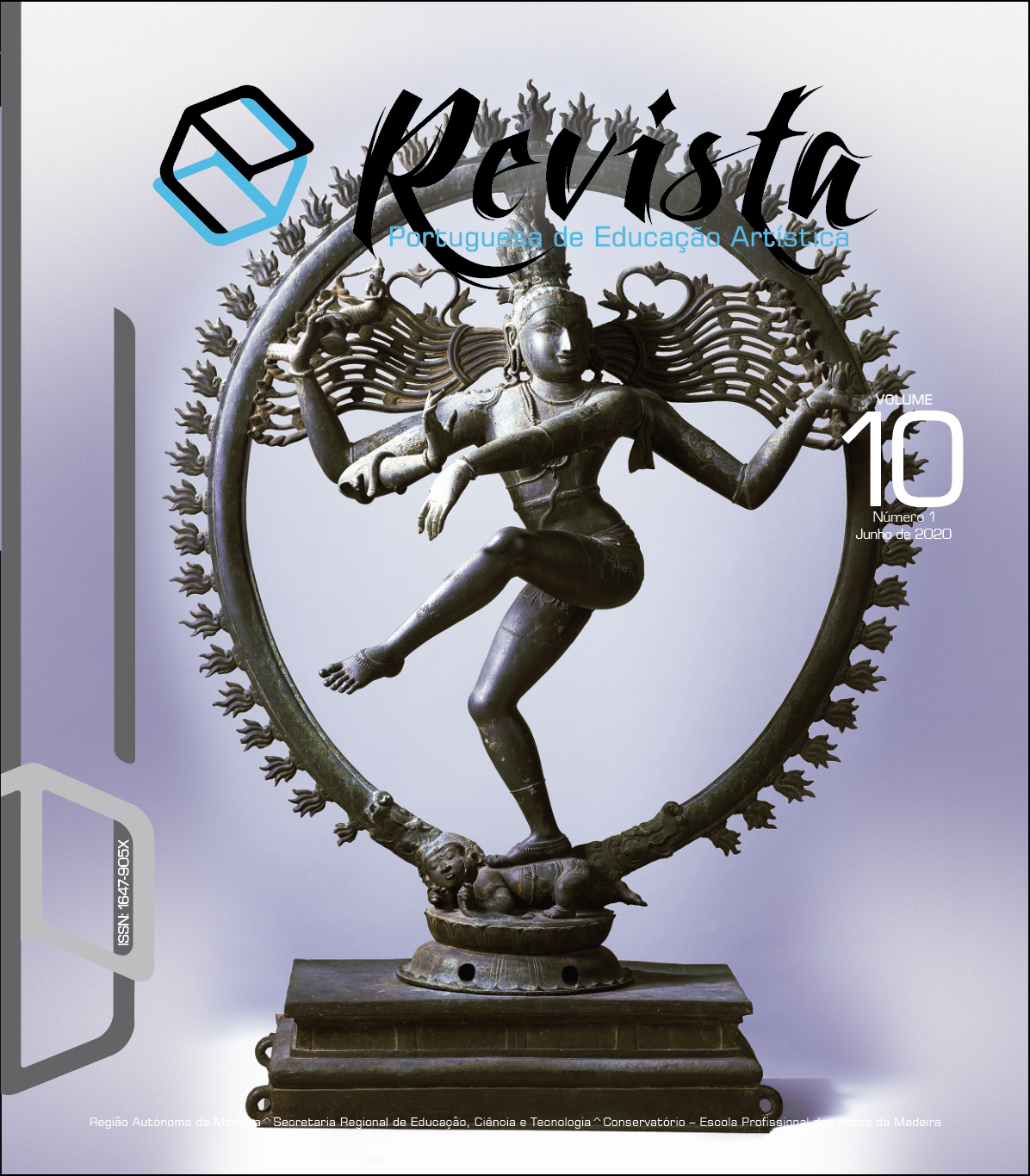RPEA Instrumental syncretism in Giacinto Scelsi’s “Ko-Tha” – Three dances of Shiva (1967), for guitar treated as a percussion instrument
DOI:
https://doi.org/10.34639/rpea.v10i1.145Keywords:
Ko-tha; Scelsi; guitar, percussion, syncretism, transcreationAbstract
The idea of investigating the characteristics of Ko-tha, by the Italian composer Giacinto Scelsi (1905-1988), for guitar treated as a percussion instrument, arose fundamentally from the fact that this piece be an unusual composition in the guitar repertoire, which, in our view, has been better assimilated by the percussionists than by the guitarists in their repertoire. After knowing the author’s inclinations, the score of Ko-tha - Three Dances of Shiva, in reality only represents a kind of flexible script, which reveals a freedom of execution still unusual in guitar writing, was composed 52 years ago, although its full version was only published in 1989 (Paris: Salabert). We do not know of antecedents of similar compositions in the classic guitar, with the rhythmic flexibility of Ko-tha, focused mainly on the percussive possibilities of the instrument. We can see in numerous compositions previous and subsequent to Ko-tha certain use of percussion on the guitar as another element integrated in their works (Murcia, Turina, Ginastera, Bogdanovic, Kampela, etc.), in classical music and in more generalist music. However, none of these works seems comparable to the composition we studied. Still, the reference in the subtitle to the dances of the Hindu god Shiva, the identification of Scelsi with orientalist currents, and the syncretic use of instruments of different organological classifications, motivates the authors of this communication, who are specialists in percussion and guitar, respectively, to do a deeper study of this work.
Downloads
Published
Issue
Section
License
Copyright (c) 2021 Revista Portuguesa de Educação Artística

This work is licensed under a Creative Commons Attribution-NonCommercial 4.0 International License.

The work Revista Portuguesa de Educação Artística (Portuguese Journal of Artistic Education) is certified under Licence-Creative Commons Attribution-NonCommercial 4.0 International (CC BY-NC 4.0).




